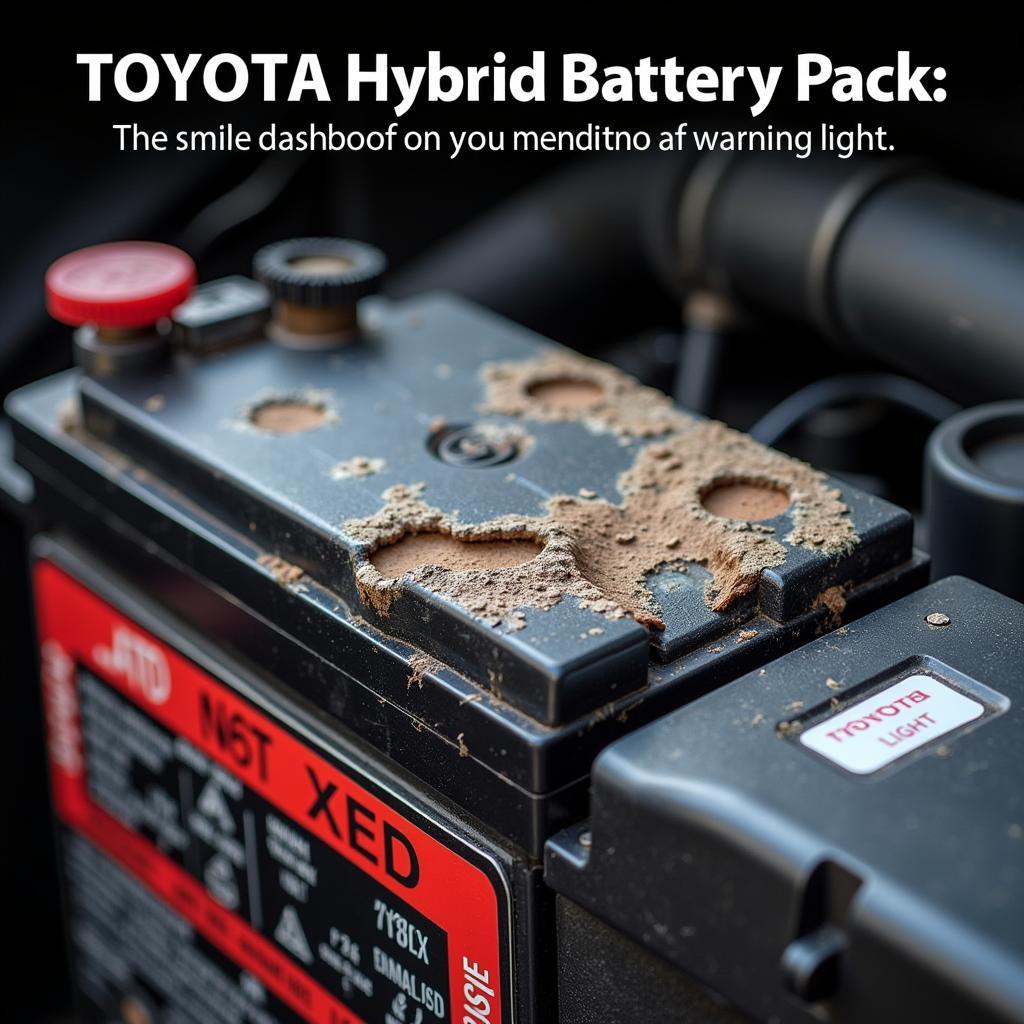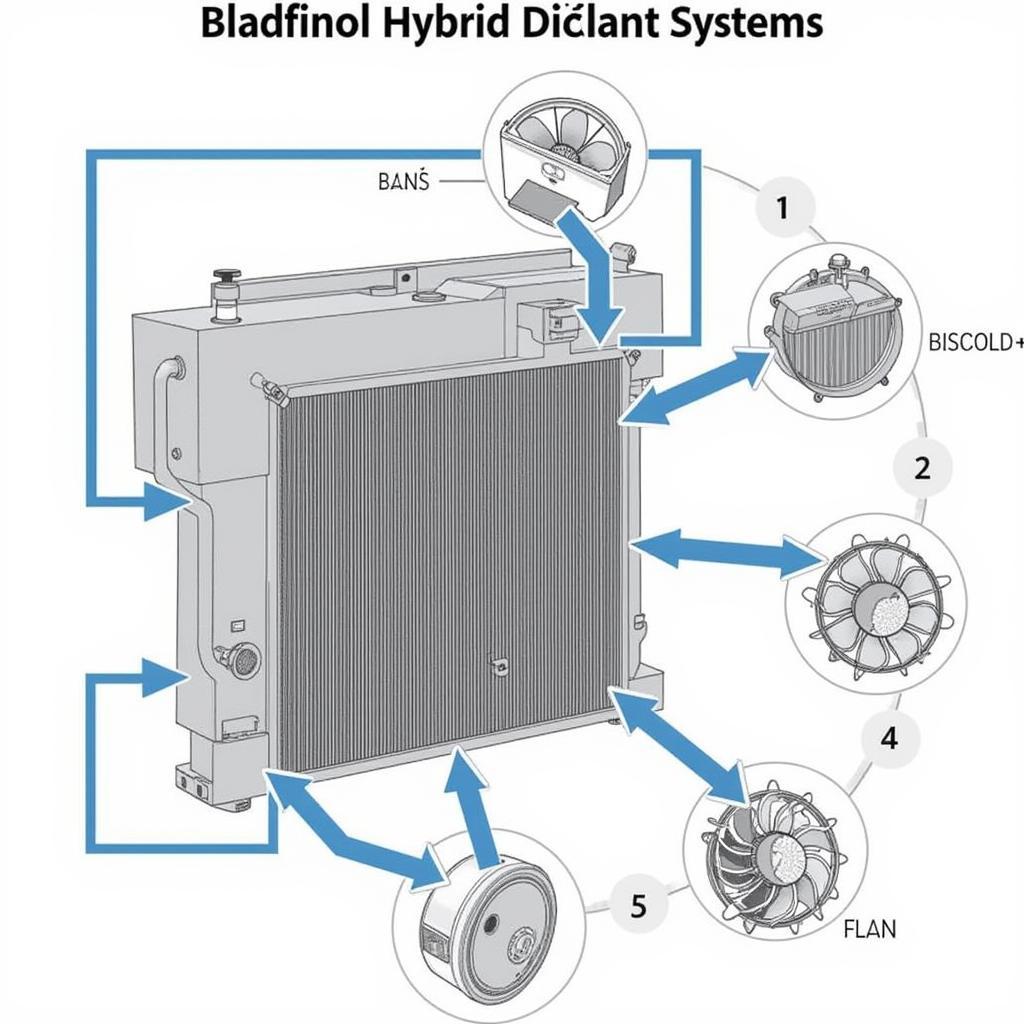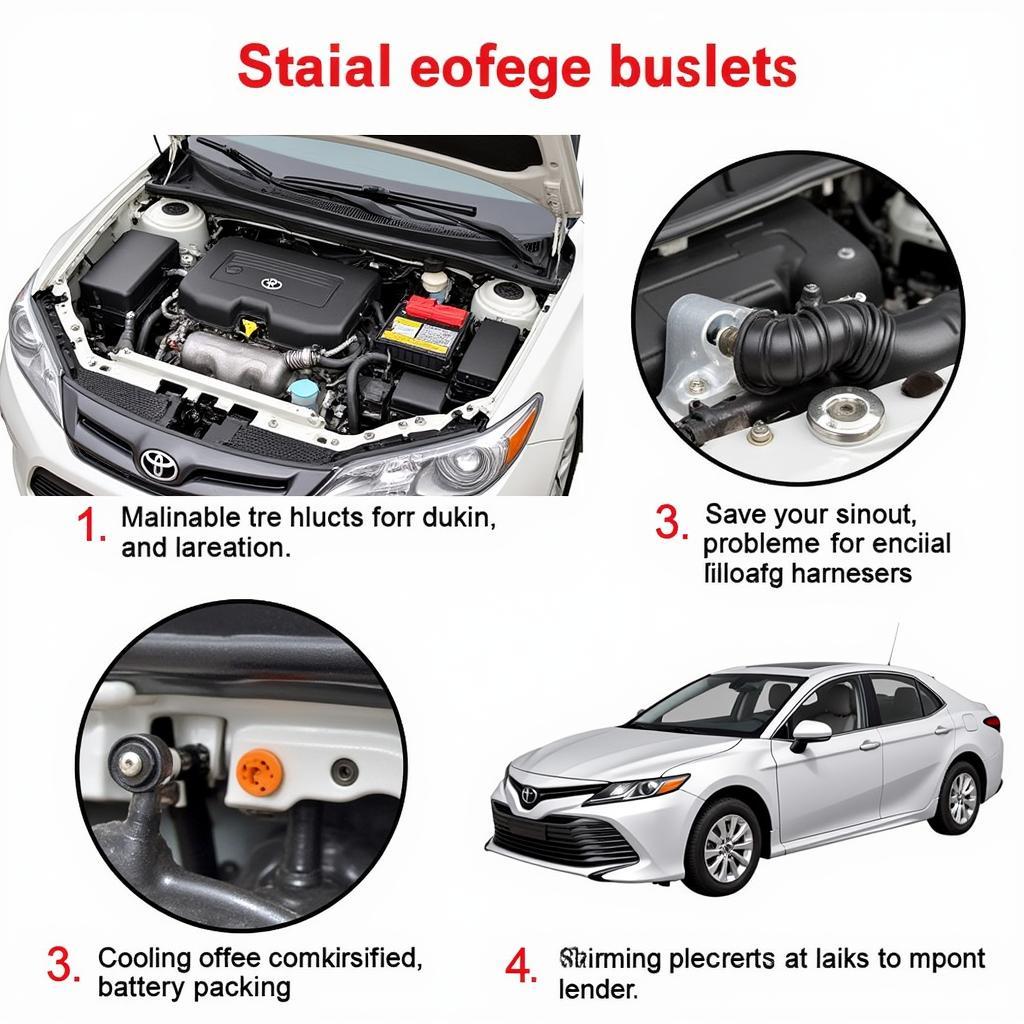Toyota hybrid cars are renowned for their fuel efficiency and reliability. However, like any vehicle, they can experience issues. Understanding these potential Problems With Toyota Hybrid Cars is crucial for owners, mechanics, and technicians alike. This guide explores common issues, diagnostic tips, and solutions to keep your hybrid running smoothly.
Are you experiencing problems with your Toyota hybrid? Don’t worry, you’re not alone. Many hybrid owners face similar challenges, and understanding the common issues can help you address them effectively. If you’re considering purchasing a used hybrid, understanding potential problems can help you make an informed decision. Check out this resource on problems with used Prius cars from NY.
Common Problems with Toyota Hybrid Systems
One common issue is with the hybrid battery. While Toyota hybrid batteries are designed for longevity, they can eventually degrade, leading to reduced fuel efficiency and performance. Another area of concern is the inverter/converter system. This system manages the flow of power between the electric motor and the gasoline engine. Malfunctions can result in power loss or complete failure of the hybrid system.
Hybrid Battery Degradation
As hybrid batteries age, their capacity to hold a charge diminishes. This is a normal process, but the rate of degradation can be influenced by factors like driving habits and climate. Symptoms of a failing hybrid battery include decreased fuel economy, reduced power, and the engine running more frequently.
 Toyota Hybrid Battery Degradation Symptoms
Toyota Hybrid Battery Degradation Symptoms
Inverter/Converter Issues
The inverter/converter is a critical component of the hybrid system. It converts DC power from the battery to AC power for the electric motor and vice-versa. Problems with this system can manifest as a loss of power, jerky acceleration, or the inability to switch between electric and gasoline modes.
Have you ever wondered what is a possible problem when buying a hybrid car? Understanding the potential issues can help you make informed decisions.
Cooling System Problems
The hybrid system generates heat, and a dedicated cooling system is necessary to maintain optimal operating temperatures. Leaks, blockages, or a malfunctioning cooling fan can lead to overheating, potentially damaging sensitive electronic components.
 Toyota Hybrid Cooling System Problems and Solutions
Toyota Hybrid Cooling System Problems and Solutions
Diagnosing Problems with Toyota Hybrid Cars
Diagnosing hybrid system problems requires specialized tools and knowledge. A scan tool capable of reading hybrid system codes is essential. Checking the hybrid battery’s state of health, inspecting the inverter/converter for damage, and verifying the proper functioning of the cooling system are crucial diagnostic steps.
Using Diagnostic Tools
Modern scan tools provide detailed information about the hybrid system’s performance and can pinpoint specific fault codes. These codes are invaluable for identifying the root cause of a problem.
Do you own a Prius and are experiencing issues? Find out more about problems that Prius cars might indicate.
Visual Inspection
A thorough visual inspection can reveal telltale signs of problems. Checking for leaks, corrosion, and damaged wiring can help identify potential issues before they escalate.
 Toyota Hybrid Visual Inspection Guide
Toyota Hybrid Visual Inspection Guide
Solutions and Maintenance Tips
Regular maintenance is crucial for preventing problems with Toyota hybrid cars. Keeping the hybrid battery cool, ensuring proper coolant levels, and adhering to the manufacturer’s recommended service schedule are essential for maintaining the system’s longevity.
Regular Maintenance
Regularly scheduled maintenance can help identify potential issues before they become major problems. This includes checking fluid levels, inspecting belts and hoses, and replacing worn-out components. For those interested in older models, here’s a list of cars with the least amount of problems in 2010.
Battery Replacement
Eventually, a hybrid battery will need to be replaced. While this can be a significant expense, it is a necessary part of owning a hybrid vehicle.
Conclusion
While Toyota hybrid cars are generally reliable, understanding potential problems with Toyota hybrid cars is essential for owners and mechanics. By addressing issues promptly and adhering to a regular maintenance schedule, you can ensure the long-term health and performance of your hybrid vehicle. Need expert assistance with your Toyota hybrid? Contact AutoTipPro at +1 (641) 206-8880 or visit our office at 500 N St Mary’s St, San Antonio, TX 78205, United States.
FAQ
- What is the typical lifespan of a Toyota hybrid battery? Toyota hybrid batteries are designed to last for several years, often exceeding 100,000 miles. However, their lifespan can vary depending on usage and environmental conditions.
- How can I improve my Toyota hybrid’s fuel economy? Proper tire inflation, gentle acceleration, and avoiding excessive idling can improve fuel efficiency.
- What are the signs of a failing hybrid battery? Decreased fuel economy, reduced power, and the engine running more frequently can indicate a failing hybrid battery.
- Is it expensive to maintain a Toyota hybrid? Maintenance costs for Toyota hybrids are generally comparable to those of conventional gasoline-powered vehicles.
- Where can I get my Toyota hybrid serviced? You can get your Toyota hybrid serviced at a Toyota dealership or a qualified independent mechanic specializing in hybrid vehicles.
- What are the most common problems with the Toyota Prius? Some common Prius issues include problems with the hybrid battery, inverter/converter, and the exhaust gas recirculation (EGR) system.
- How can I diagnose problems with my Toyota hybrid? A specialized scan tool is necessary to read hybrid system codes and diagnose problems accurately.






Leave a Reply